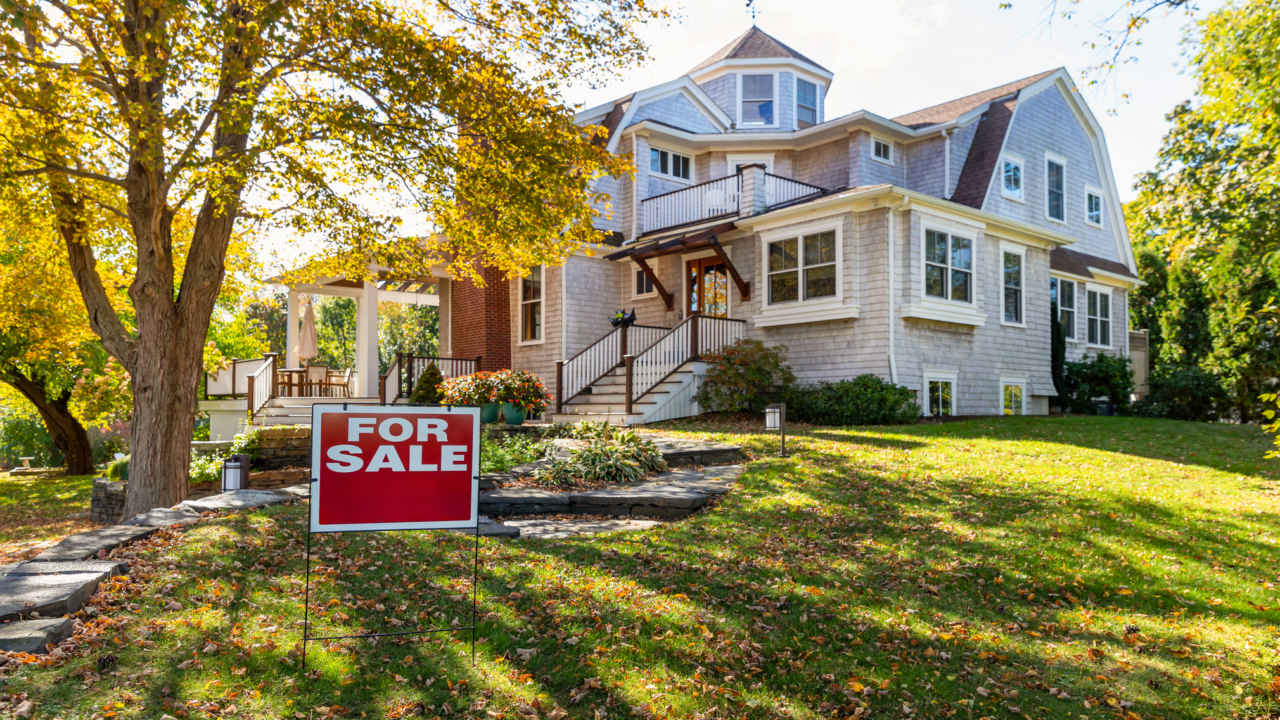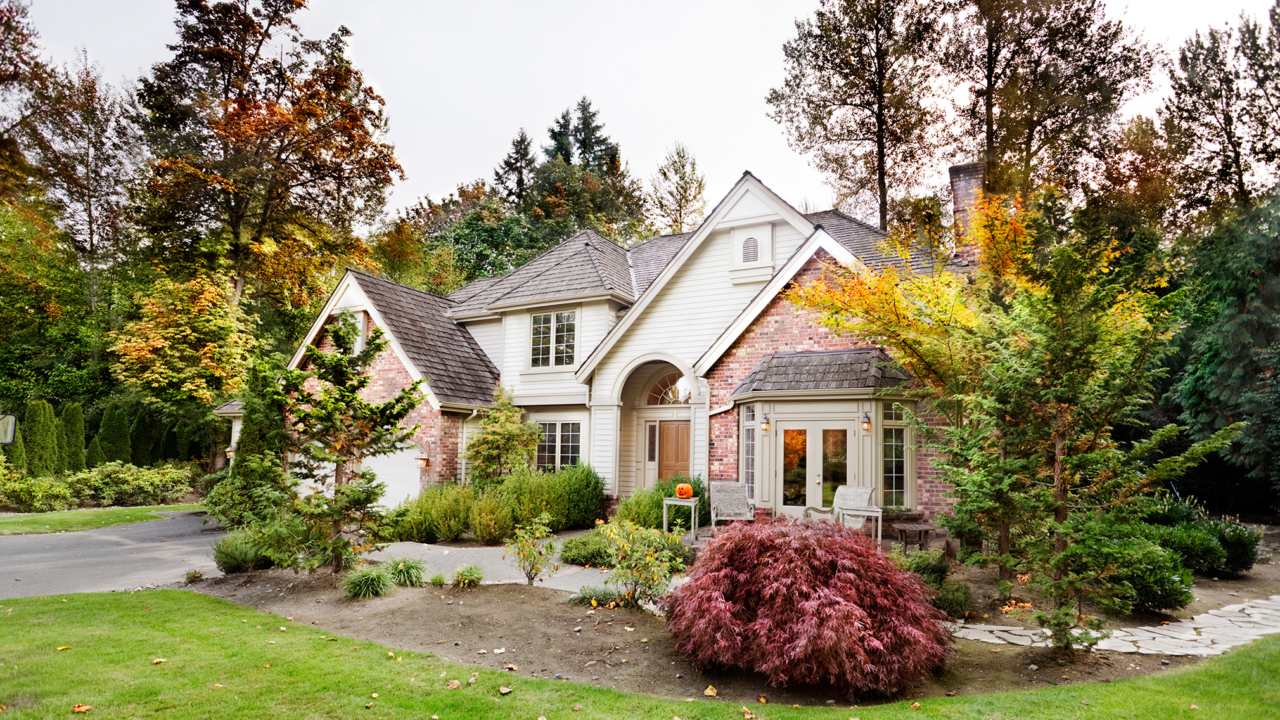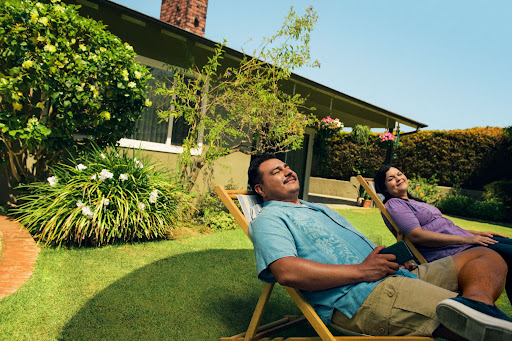Should I Sell My House and Rent When I Retire?
What should you do with your home when you retire? Read our guide to find the best decision for your needs.


In this article:
- Should I sell my house when I retire?
- Tips to sell a house in retirement
- Does it make sense to rent in retirement?
- Challenges of renting after retirement
If you're nearing retirement or already there, you may be trying to decide between selling your home or aging in place. And if you've already decided to sell, will you buy a new home or rent?
According to the Zillow Group Consumer Housing Trends Report 2018, 60% of baby boomers (ages 54-73) who are selling a home are also buying another home, but only 40% of sellers in the silent generation (ages 74+) are buying again. Note that the average American retires at age 62, so the baby boomer group encompasses both retired people and those who haven’t yet retired. It’s safe to assume that most sellers in the silent generation are already retired.
Should I sell my house when I retire?
If you own your home outright or have a lot of equity, selling could help you fund your retirement. But renting in retirement could end up being more expensive than aging in place in a paid-off home, where you’d be responsible for just yearly property taxes and maintenance.
Retirement is a big life change, and one big life change sometimes leads to another. Should you stay in your current home once you've retired? Or is it time to move on? Consider these reasons to stay or go so you can make the best choice for your situation.
Reasons to stay in your current home after retiring
Zillow defines empty nesters as homeowners who are 55+, have lived in their current home for 10 or more years, and have no children of any age living at home. Empty-nest households are on the rise, and here are some reasons people in this demographic decide to stay put.
You already have a sense of community
It can take time for a community to feel like home. You may feel nostalgic about the neighborhood you live in, especially if you raised your kids there.
Your home has already been modified
If you've already spent the time and money to make your home comfortable so you can age in place, you may be less inclined to move and start over. And you can always keep modifying as your needs change. According to Zillow research, 19% of retired homeowners report making some kind of accessibility accommodations in their home, whether it's modifying flooring, adding handrails, or installing a walk-in shower or bath.
You want to pass your house on to a family member
Instead of selling, you might want to leave the family home to your children or grandchildren someday. Just consult a tax professional about the capital gains tax implications for people who inherit homes.
Reasons to sell your current home after retiring
According to the Zillow Group Report, 25% of sellers are baby boomers, and 13% are from the silent generation. Here are some of the common reasons why people in these demographics decide to sell in retirement.
You can't afford the home
If you can't afford your home's monthly costs now that you don't have a steady income, it may be the right time to sell.
The home doesn't fit your lifestyle
As you age, you might prefer a home that's less work to take care of, like a home with a small yard or no yard at all. Or you might develop mobility issues that would be easier to manage in a single-story home.
You need to downsize
A large single-family home requires a lot of maintenance, so many retirees decide to move into a smaller apartment or condo so they can spend their free time on other hobbies.
You want a new location
Retirees sometimes find themselves wanting to move to pursue interests like golf or skiing. Or you may want to move near the beach or to a more pedestrian-friendly neighborhood.
Tips to sell a house in retirement
Transitioning from homeowner to renter is an adjustment, especially if you’ve owned a home for a long time. Before moving forward, make sure selling your home makes sense from a financial and practical standpoint.
Calculate your equity
If you need the equity from your home to invest in another home — or another type of investment to fund your retirement — it's important to calculate your potential profit ahead of time. Hire a real estate agent or run the comparables yourself to see how much you can sell your home for. Don't forget to factor in any remaining mortgage balance, and be sure to account for commissions, closing costs, repairs and buyer concessions.
Time the market right
Nationally, the best time of year to list your home is a Saturday in the first half of May. According to Zillow research, homes listed in this window sell two weeks faster than average and for $1,600 more.
Understand listing prep work
If you've lived in your home for decades, there are probably cosmetic, mechanical or structural upgrades or repairs to complete to either bring your home up to code or appeal to buyers. According to Zillow research, sellers who hire professionals to help with their pre-sale prep work spend an average of $6,570, which includes things like painting, staging and lawn care.
Consider capital gains taxes
If you've owned your home for a long time and gained significant equity, you may be on the hook for capital gains taxes when you sell. Current tax law allows for an exemption of $250,000 in profits for a single person and $500,000 for a couple. If you believe you may pocket more than that amount, talk to your tax professional for other options, including turning your home into a rental property, then swapping it for another property using a 1031 exchange.
Does it make sense to rent in retirement?
Once you've decided to sell, you might wonder if you should buy again or rent instead. Here are a few key reasons retirees decide to rent instead of own.
More retirement funds
Selling your home and moving to a rental can free up the equity you have in your home, which you can use to fund monthly expenses throughout your retirement. Or you can reinvest in another type of investment that will provide a good return, while keeping your money accessible if and when you need it.
Downsizing for lower monthly expenses
After retirement, many people find they don’t need as much space as they once did or they don’t want to maintain a big single-family home. Downsizing into a smaller home, like an apartment, can save money in monthly housing costs, utilities and furnishings. There’s also less maintenance to do, and unexpected costs are limited.
Less expensive insurance
Renters insurance is much less expensive than homeowners insurance, especially if you're thinking about living near the beach, where homeowners are required to have flood insurance.
No property taxes
If you live in or are planning to move to an area with high property taxes, renting can help you avoid large tax bills.
No home sale contingency
Upon selling your home, you can move into a rental that aligns with your close date, rather than worry about buying another home and timing it just right (or carrying two mortgages at once).
Less maintenance
Mowing the lawn, cleaning the pool, changing the HVAC filters — being a homeowner takes up a lot of your free time. When you're renting, your landlord often takes care of most maintenance tasks. You also won't have to pay for maintenance, repairs or appliance replacements.
More amenities
If you're moving from a single-family home into an apartment, your new place may come with great amenities, like a pool, gym or tennis court — all without paying HOA dues.
Freedom to travel
When you rent an apartment, you're not tied to your house for the long term. You can even try out different cities with short-term leases or take extended trips without worrying about your house sitting empty.
Sense of belonging
Retirement communities or planned communities for seniors can be a great place to connect with other people in your same stage of life or with similar interests.
Challenges of renting after retirement
If you're a longtime homeowner, you'll want to remember what it's like to be a renter and get used to this lifestyle change.
Letting go of emotional attachment
Saying goodbye to your once 'forever home' can be difficult. You'll have to be willing to part with your old home and instead keep the memories.
Relying on a landlord
When you're not the owner of a property, you're no longer the decision-maker. If something breaks, you'll have to rely on your landlord to fix it. You may not be allowed to make all the upgrades you want, and if you do make improvements, you won't see any return on your investment when you move out.
Paying new monthly fees
You may have to pay for things you never considered when you were a homeowner, like parking or pet fees. Make sure to factor these additional costs into your monthly budget. In some large cities, parking costs can exceed $250 a month.
Unpredictability of rent costs
Unlike a fixed-rate mortgage, your rent can (and likely will) fluctuate yearly, based on the market and your landlord. According to our latest rental market report, median rent rose 2.6% ($38 based on median rent) year over year, reaching $1,477 in April of February 2019.
- Las Vegas had the highest year-over-year rental increase at 7.8%.
- Phoenix had the second-highest increase at 6.7%.
- Orlando had the third-highest at 6.4%.
In many markets, renting is cheaper each month than owning — at least in the near-term. Austin, Texas, was just ranked as one of the best places to retire, according to U.S. News & World Report. Austin's median rental listing price is $1,695 per month, while the median home for sale has a listing price of $389,000. If you assume a 20% down payment ($77,800 upfront), plus closing costs and a 4.3% interest rate, you'd pay $2,049 per month as a homeowner — an increase of $354 over renting. However, renters don’t earn equity in their apartments like homeowners do, which can make buying a smarter choice in the long term.



